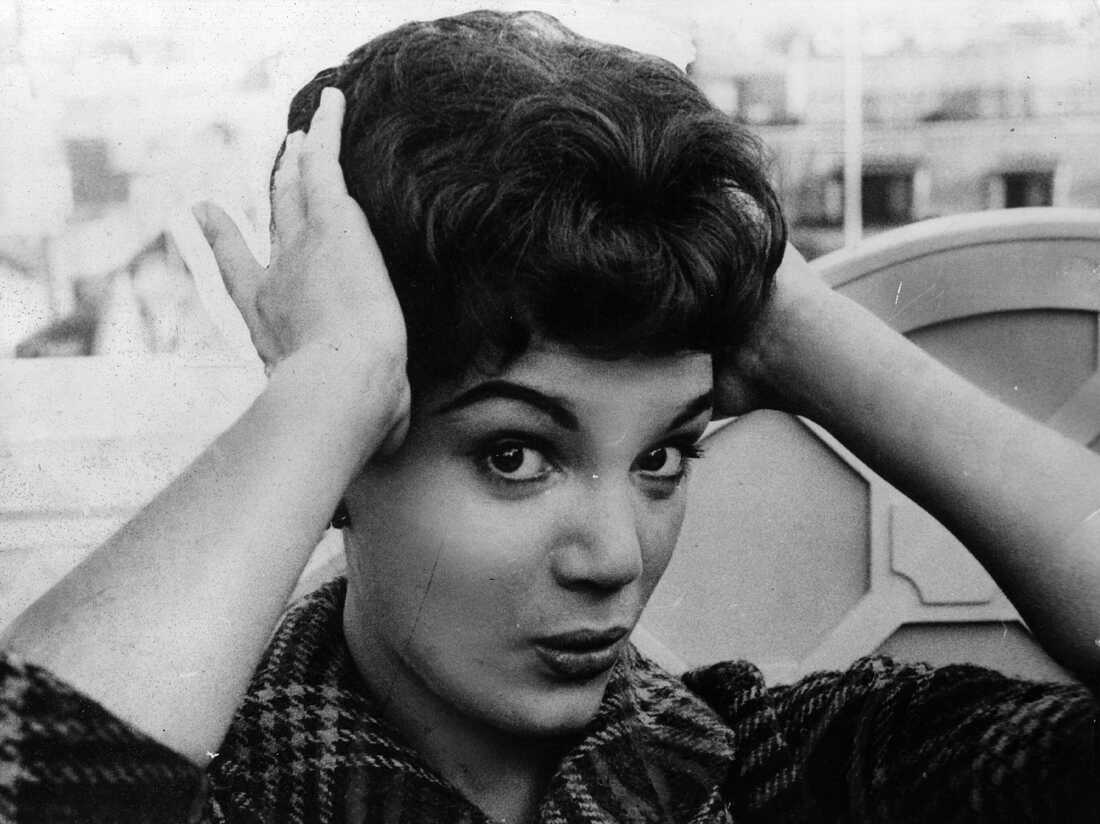Susan Boyle — the quiet woman with a voice from heaven — appeared silently at Connie Francis’s funeral. No press. No fans. Just mourners wrapped in stillness and memory. As she walked between rows of white-covered chairs, she seemed almost ghostlike, as if carrying a piece of the past with her. Then, without announcement, the opening notes of “Where the Boys Are” began to echo softly through the room — Connie’s most beloved song. Susan stood, her voice trembling but rich with emotion. Each word she sang seemed to breathe life into a memory, a goodbye wrapped in melody. And when the final note faded into silence, the moment became her last gift — not just to Connie, but to everyone present. Tears welled up in eyes that hadn’t planned to cry. No one knew exactly why their hearts ached so deeply… only that something sacred had passed through them and would never return.
“The Final Note: When Susan Boyle Sang Goodbye to Connie Francis”

It wasn’t announced. It wasn’t filmed. There were no screaming fans or flashing lights. But what happened that gray morning in a small chapel on Long Island will be remembered by every soul who witnessed it.
The funeral of Connie Francis — the voice of a generation, the heartbreak queen of the ‘50s and ‘60s — was expected to be a modest affair. Her family had requested privacy. No cameras. No red carpet of tributes. Just a room full of people who loved her. A few music historians. A handful of former backup singers. Some old friends from New Jersey. And, quietly, in the third pew from the back, Susan Boyle.

She wore black from head to toe, her hands gently clasped in her lap. No one noticed her at first. There were whispers of “Is that—?” but they quickly faded beneath the weight of the occasion. Susan sat motionless, as if trying to disappear into the walls.
For many, the service felt incomplete. There had been speeches, some tears, and a few piano notes from a local church musician. But something was missing — a voice, perhaps. A farewell in the language Connie had spoken so fluently: song.
Then it happened.
:max_bytes(150000):strip_icc():focal(999x0:1001x2)/connie-francis-03-022324-c3e3fbc73d1d48dd92f25ee1ff6fffe6.jpg)
As the organist prepared to close with a simple hymn, a soft sound interrupted him. A familiar melody, almost hesitant, began to float through the room.
“Where the boys are, someone waits for me…”
Heads turned. People gasped. Susan Boyle was standing, facing the front, her voice trembling in the quiet air. No microphone. No accompaniment. Just her and the ghost of a melody that once echoed through jukeboxes across America.
Her voice wasn’t flawless that day. It cracked slightly on the high notes. Her hands shook. But that’s what made it unforgettable.
Because Susan wasn’t singing for perfection.
She was singing for Connie.
With each lyric, she poured out something raw and reverent — as if this was the goodbye she never got to say. She sang not just to Connie, but with her. Every line felt like a conversation between two women connected by more than fame — by the ache of dreams, the loneliness of the spotlight, and the healing power of music.
As she reached the final verse, the room was completely still. No coughs. No phones. Just tears.
“I know it’s just a matter of time…”
Then silence.
Susan lowered her hands. Her eyes, wet with emotion, glanced once toward the photo of Connie on the altar — young, vibrant, full of life — and then she sat down.
No one applauded. It didn’t feel right. It wasn’t a performance. It was a prayer.
Later, someone would say it felt as if the air itself had changed — heavier, sadder, but somehow more peaceful. Another mourner whispered, “I don’t know why I cried. I didn’t even know I could cry like that anymore.”
Susan Boyle didn’t stay for the reception. She slipped out as quietly as she had arrived, disappearing into the gray mist outside, leaving behind a silence more profound than any standing ovation.
But those who were there will never forget.
Not because she sang perfectly.
But because, for one fleeting moment, Susan gave voice to the grief no one could name — and to the love that never truly dies.
It wasn’t the closing of a chapter.
It was the final note of a symphony that spanned decades.
And as it faded, it left behind the echo of something eternal.



